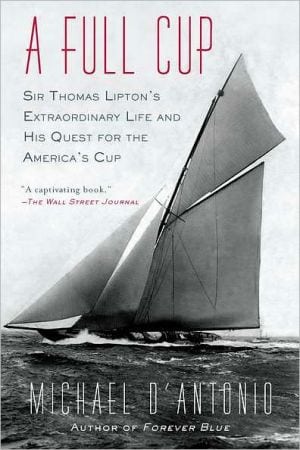 Here we are. Thomas Lipton. I’ll pick up any teabook, really, and I enjoy reading about any bit of tea history. Important figures, especially recent ones, hold a special place for me. This shouldn’t come as a surprise, seeing as my most popular post was a breakdown of the history of John Murchie, and I constantly defend Tazo because of Steven Smith. Either way, Lipton is usually said with a snear in tea-going circles.
Here we are. Thomas Lipton. I’ll pick up any teabook, really, and I enjoy reading about any bit of tea history. Important figures, especially recent ones, hold a special place for me. This shouldn’t come as a surprise, seeing as my most popular post was a breakdown of the history of John Murchie, and I constantly defend Tazo because of Steven Smith. Either way, Lipton is usually said with a snear in tea-going circles.
Category: Tea Books
Book: The Tea Cyclopedia
 This is a pretty unassuming little book, but turned out to be a solid read. The style of the cover actually mislead me into thinking it was a lot older than it was–I figured a reprint of a 1970s book–but it was actually published in 2013. I will say there are definitely a lot of books that cover most of the same subjects in about the same amount of depth, but this one does have a few merits I haven’t seen in too many ‘general tea’ books. Continue reading
This is a pretty unassuming little book, but turned out to be a solid read. The style of the cover actually mislead me into thinking it was a lot older than it was–I figured a reprint of a 1970s book–but it was actually published in 2013. I will say there are definitely a lot of books that cover most of the same subjects in about the same amount of depth, but this one does have a few merits I haven’t seen in too many ‘general tea’ books. Continue reading
Book: Puer Tea: Ancient Caravans and Urban Chic
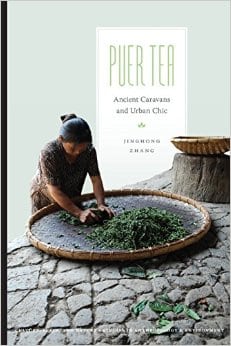 In the wake of the current Verdant Tea scandal, this seems like the perfect read. I started this book a little before the VTF, but juggling schoolwork and leisure reading, I haven’t really gotten to finishing it until recently. And I guess it’s perfect timing, because I think it’s a very relevant read to understanding the current drama. I won’t really be touching on that, because there are already half a dozen other tea-blogs that have covered it in depth, plus threads on TeaChat, r/tea, and Steepster to chronolog the drama (here’s Steepster’s to get you started, if you really haven’t been following the drama). Continue reading
In the wake of the current Verdant Tea scandal, this seems like the perfect read. I started this book a little before the VTF, but juggling schoolwork and leisure reading, I haven’t really gotten to finishing it until recently. And I guess it’s perfect timing, because I think it’s a very relevant read to understanding the current drama. I won’t really be touching on that, because there are already half a dozen other tea-blogs that have covered it in depth, plus threads on TeaChat, r/tea, and Steepster to chronolog the drama (here’s Steepster’s to get you started, if you really haven’t been following the drama). Continue reading
Book: The Great Tea Venture, by J.M. Scott
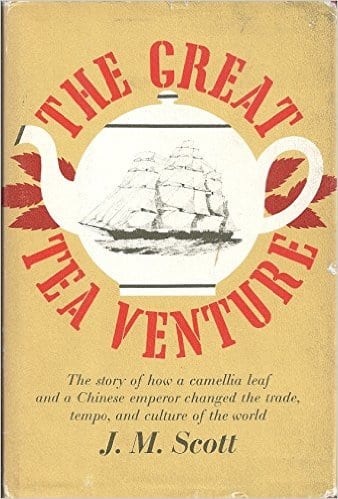 Oh hey, I’m actually discussing a book that’s easily available for once.
Oh hey, I’m actually discussing a book that’s easily available for once.
If you ever wanted a book that focuses exclusively on the history of British involvement in tea (misnomer: there is a bit about Ireland’s involvement), then this is that book. A lot of tea-history books try to cover a bit of everything at once, and that’s nice for a general idea, but a lot of facts get passed over (deja vu, I think I’ve discussed this before). I like picking up books that focus on a particular culture’s tale. I don’t have any preferences (okay, maybe Russia…). Scott does mention the richness and vastness of China’s history in comparison to the UK’s, but establishes that this book will focus on the isles. Continue reading
Book: Tea Processing, compiled by J. Werkhoven
Tea Processing is a bit like my library’s spiritual successor to Tea Growing. It’s not the ACTUAL successor, he wrote another book called Tea Manufacture that this book actually references (among others). But that book’s in my public library’s Collection, so I haven’t gotten around to checking it out because it requires getting a librarian to pull it out of the bulk storage… They just don’t trust you with access to the high density shelving. Well, there’s enough kids running around who’d think it’d be funny to try and close the shelves on someone, I suppose. Continue reading
Book: The Ancient Art of Tea
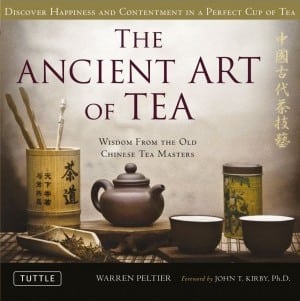 I was pleasantly surprised by this book. I didn’t go in with high hopes (not to say they were low, but I cracked it with a pretty neutral expression); though, I did notice the “Tuttle” stamp, and heck, they publish a lot of gems. And that’s what I found this to be. A gem. This one was a gift from my mom–she picked it up on the ferry as a birthday gift a few years back (don’t judge, I’ve got a large book backlog), which is part of the reason I didn’t expect much. Ferry giftshop literature.
I was pleasantly surprised by this book. I didn’t go in with high hopes (not to say they were low, but I cracked it with a pretty neutral expression); though, I did notice the “Tuttle” stamp, and heck, they publish a lot of gems. And that’s what I found this to be. A gem. This one was a gift from my mom–she picked it up on the ferry as a birthday gift a few years back (don’t judge, I’ve got a large book backlog), which is part of the reason I didn’t expect much. Ferry giftshop literature.
When you read the synopsis and opening words, you get the feeling the book will be, literally, just a bunch of quotes. I figured the run-of-the-mill types; Thoreau and Dickens and such (it says right there on the front cover, “Old Chinese Tea Masters”, AJ). Once I started flipping through it I realized my mistake, because it’s definitely a cohesive work with sections and actual paragraphs. Continue reading
Book: Chinese Tea: A Cultural History and Guide
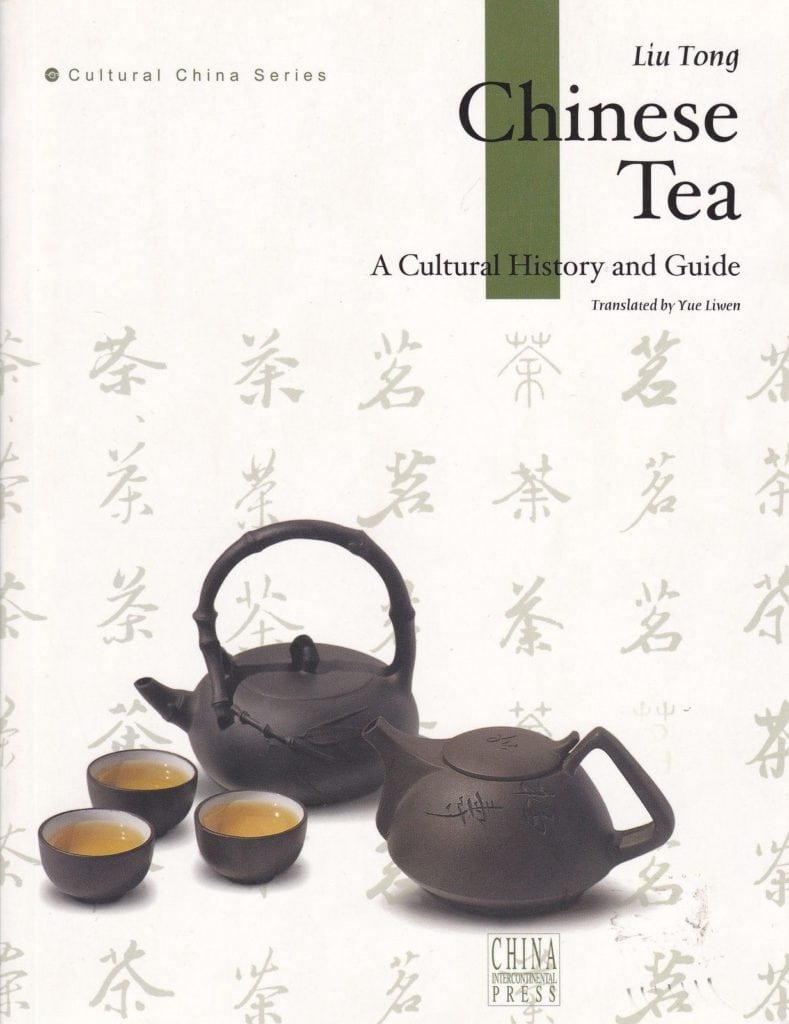
This was an interesting little book I checked out of a local library. By Liu Tong, and translated by Yue Liwen, I found it informative and colourful. It’s not a dry book, and probably my favourite aspect is how often it goes off on tangents concerning tea lore.
Book: Tea Growing, by C.R. Harler
Well, it’s been a while.
Since I read the book, I mean. I know I take pretty big breaks between posts. I picked this up during the summer, and finished it off pretty quickly, but I guess I got caught up after the term started.
Book: Tea Marketing Systems in Bangladesh, China, India, Indonesia, and Sri Lanka
This would be the book I picked up from my university library some time before Christmas. I feel a bit apologetic writing about a book that, as far as I’ve been able to find out, is just about impossible to obtain. There is a short inscription on the back of the book regarding messaging the United Nations for publications, but it seems to imply that if your local bookstore doesn’t carry it, you’re out of luck.
The UN, however, does seem to have a lot of their articles and books published online now. Although this publication isn’t among them (I know, I spent a tireless evening looking for it, because I liked this enough to want a copy on-hand [though it WAS published in 1996]), I wonder if emailing them might prompt them to post this and similar works online.
Book: For All the Tea in China
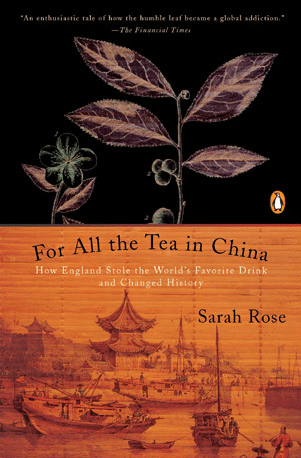 For All the Tea in China is a very sprightly, up-beat work of non-fiction detailing Robert Fortune’s botanical espionage, and the racism of the times. It is, at this point, a Reading Requirement for all new Tea Drinking, Book Loving Recruits (or so I suppose, from Steepster’s general consensus). As some people might remember, I picked this book up… oh… two years ago, just a little while after I had returned from working Up North. I was picking up history books left and right at the time, but I force myself to read all my books in order, so as to make sure no book is left collecting dust for long (except for a small clause which allows me to put any owned book on hold in order to read any book from the library–this is due to the two-week limit imposed on most books, which forces me to finish them in a timely manner).
For All the Tea in China is a very sprightly, up-beat work of non-fiction detailing Robert Fortune’s botanical espionage, and the racism of the times. It is, at this point, a Reading Requirement for all new Tea Drinking, Book Loving Recruits (or so I suppose, from Steepster’s general consensus). As some people might remember, I picked this book up… oh… two years ago, just a little while after I had returned from working Up North. I was picking up history books left and right at the time, but I force myself to read all my books in order, so as to make sure no book is left collecting dust for long (except for a small clause which allows me to put any owned book on hold in order to read any book from the library–this is due to the two-week limit imposed on most books, which forces me to finish them in a timely manner).



